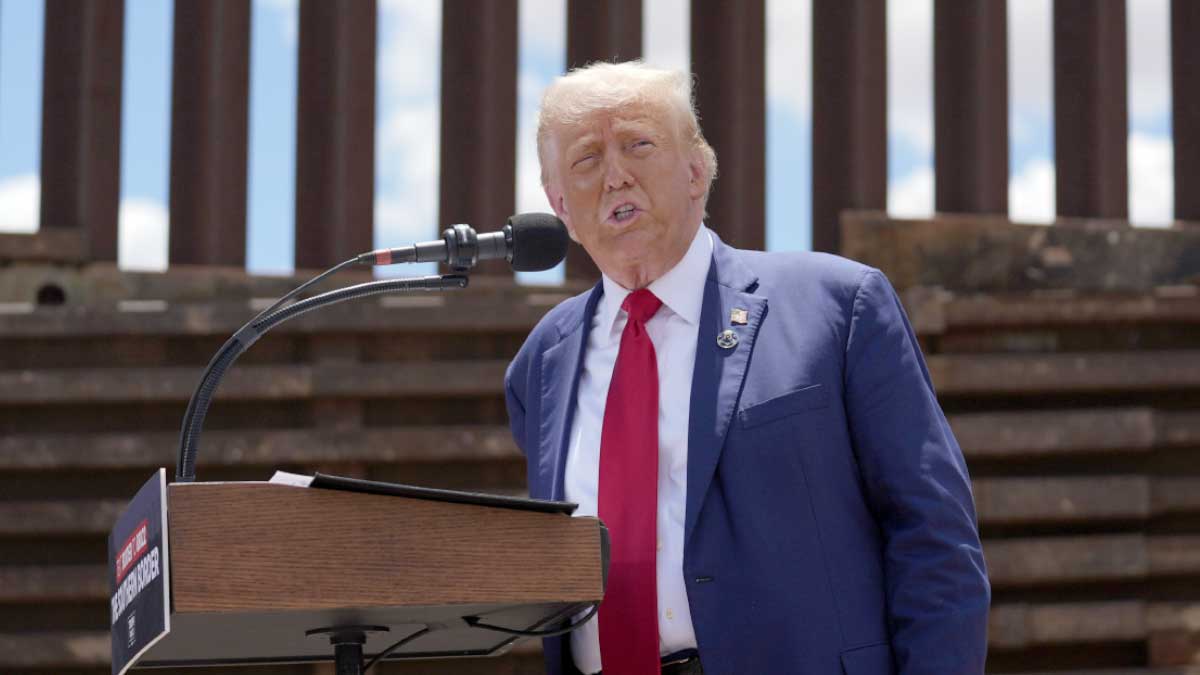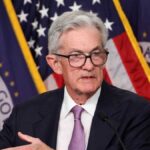- Home
- Billionaires
- Investing Newsletters
- 193CC 1000
- Article Layout 2
- Article Layout 3
- Article Layout 4
- Article Layout 5
- Article Layout 6
- Article Layout 7
- Article Layout 8
- Article Layout 9
- Article Layout 10
- Article Layout 11
- Article Layout 12
- Article Layout 13
- Article Layout 14
- Article Sidebar
- Post Format
- pages
- Archive Layouts
- Post Gallery
- Post Video Background
- Post Review
- Sponsored Post
- Leadership
- Business
- Money
- Small Business
- Innovation
- Shop
Recent Posts
Poll: Most Americans Fear Non-Citizen Voting in 2024

A new poll indicates that more than half of Americans, including a sizable portion of Democrats, are concerned about non-citizens illegally voting in the upcoming 2024 election. This survey, conducted by Scripps/Ipsos, reflects the continuing influence of widespread, yet unsupported claims regarding voter fraud, many of which have been amplified by former President Donald Trump and other prominent Republican figures. These concerns persist despite a lack of substantial evidence to support the idea that non-citizens are voting in large numbers or that such incidents could significantly influence election outcomes.
The poll reveals that 51% of respondents are worried about non-citizens voting illegally, a concern most pronounced among Republicans, with 83% expressing apprehension. Nearly half of independents (46%) and a quarter of Democrats (24%) share this concern. Despite these fears, multiple studies show that instances of non-citizens voting are exceedingly rare. It is already illegal for non-citizens to vote in U.S. elections, and studies have shown little evidence that this law is frequently violated. Nonetheless, this issue continues to shape discussions about election integrity, particularly among Republican voters.
Trump has played a significant role in stoking these concerns. He has repeatedly made unsubstantiated claims that the Biden-Harris administration is intentionally allowing undocumented migrants into the country so they can vote for Democrats. Trump’s assertions have been thoroughly debunked, but they resonate with many in his political base. The former president’s rhetoric has spurred legislative efforts from Republican lawmakers to introduce stricter voting regulations. One such effort is set to be voted on in the House of Representatives this week, alongside a bill designed to prevent a government shutdown. This legislation would require proof of citizenship for voter registration, a measure that some Republicans argue is necessary to preserve election integrity, though critics claim it would disproportionately suppress voter turnout, particularly among minority communities.
Despite Trump’s claims, no substantial evidence suggests that the Democratic Party is promoting illegal immigration or facilitating non-citizen voting. A federal law already mandates that voters swear they are U.S. citizens on registration forms, under penalty of perjury. Numerous audits and studies have consistently found that violations of this law are rare. For instance, a Republican-led audit in Georgia found that between 1997 and 2022, only 1,634 non-citizens attempted to register to vote, and none of them actually cast a ballot. Additionally, research from the libertarian Cato Institute determined that there is no convincing evidence that non-citizens have voted in significant enough numbers to affect election results.
The poll also touched on attitudes toward immigration policy, particularly Trump’s proposal for mass deportations of undocumented immigrants. According to the Scripps/Ipsos survey, 54% of respondents, including 86% of Republicans, 58% of independents, and 25% of Democrats, “strongly” or “somewhat” support the mass deportation plan. Trump’s immigration policies, which were a defining feature of his presidency, continue to influence voter preferences on the issue. However, experts warn that such a large-scale deportation initiative could overwhelm detention facilities, burden immigration courts, and cost billions of dollars. Critics also argue that mass deportations would drain resources from other law enforcement priorities and increase tension between law enforcement agencies and immigrant communities.
In an example of the challenges surrounding this debate, Oregon officials recently acknowledged that about 300 non-citizens had been mistakenly registered to vote when they applied for driver’s licenses, a process that was supposed to automatically register eligible citizens only. Two of these non-citizens actually voted in elections. While this incident was described as a “data entry issue,” it has reignited concerns about the integrity of voter registration systems. Oregon’s Secretary of State, LaVonne Griffin-Valade, assured the public that those mistakenly registered would not receive ballots for the upcoming election.
At the same time, the Trump campaign and various Republican entities are pursuing legal action in Nevada. They claim that over 11,000 non-citizens are registered to vote in the state, with nearly 4,000 allegedly having voted in the 2020 election. Nevada’s Democratic Secretary of State, Francisco Aguilar, has firmly denied these allegations, stating that the claims are “false” and only serve to erode trust in the electoral process. Aguilar’s office has stressed that their voter registration and election procedures are robust, and there is no credible evidence of widespread voter fraud.
The debate over immigration policy extends beyond voter registration concerns. Billionaire Elon Musk recently entered the fray, asserting on social media that if Vice President Kamala Harris wins the 2024 election, Democrats would legalize enough migrants to ensure “permanent one-party rule.” Musk’s claims, though popular in some right-wing circles, lack substantiation. There is no clear pathway for undocumented immigrants to gain citizenship quickly, and studies have found no evidence of a deliberate strategy by Democrats to “import” voters. Musk’s rhetoric, however, echoes the broader sentiment held by many conservative voters who view immigration policies as a critical battleground in maintaining political power.
In the context of these claims, it is important to remember that federal law already sets strict requirements for voter registration, including a sworn declaration of citizenship under the risk of perjury. While calls for proof of citizenship have grown louder, studies indicate that attempts by non-citizens to vote are exceedingly rare. Republican Georgia Secretary of State Brad Raffensperger’s audit, for example, found minimal evidence of non-citizen registration attempts over a 25-year period, with none resulting in votes being cast. The Cato Institute and other research organizations have similarly found no substantial proof that non-citizens are affecting election outcomes.
The political landscape remains charged, with immigration and election integrity likely to play central roles in the 2024 campaign. Trump’s proposed immigration policies, which include deportations, ending birthright citizenship, and reinstating the travel ban, could further inflame tensions. Meanwhile, Congress faces a looming deadline to pass a new spending plan to avoid a government shutdown by midnight on September 30. Some Republicans have vowed to block any deal that does not include stricter voting provisions, raising the stakes for the upcoming legislative session. How these issues unfold will have significant implications not only for the 2024 election but for the future of U.S. immigration and voting policy.
Recent Posts
Categories
- 193cc Digital Assets2
- 5G1
- Aerospace & Defense46
- AI37
- Arts3
- Banking & Insurance11
- Big Data3
- Billionaires449
- Boats & Planes1
- Business328
- Careers13
- Cars & Bikes76
- CEO Network1
- CFO Network17
- CHRO Network1
- CIO Network1
- Cloud10
- CMO Network18
- Commercial Real Estate7
- Consultant1
- Consumer Tech180
- CxO1
- Cybersecurity68
- Dining1
- Diversity, Equity & Inclusion4
- Education7
- Energy8
- Enterprise Tech29
- Events11
- Fintech1
- Food & Drink2
- Franchises1
- Freelance1
- Future Of Work2
- Games141
- GIG1
- Healthcare78
- Hollywood & Entertainment186
- Houses1
- Innovation42
- Investing2
- Investing Newsletters4
- Leadership65
- Lifestyle11
- Manufacturing1
- Markets20
- Media193
- Mobile phone1
- Money13
- Personal Finance2
- Policy567
- Real Estate1
- Research6
- Retail1
- Retirement1
- Small Business1
- SportsMoney33
- Style & Beauty1
- Success Income1
- Taxes2
- Travel10
- Uncategorized8
- Vices1
- Watches & Jewelry2
- world's billionaires418
Related Articles
Trump Moves $4B Stake in Truth Social Parent, Stock Drops 6%
Donald Trump recently transferred his 57% stake in Trump Media & Technology...
By 193cc Agency CouncilDecember 20, 2024House Rejects Trump-Backed Funding Bill, Shutdown Looms
The U.S. House of Representatives rejected a new government funding bill on...
By 193cc Agency CouncilDecember 20, 2024Trump Named Time’s Person of the Year for Second Time
On Thursday, Time magazine honored Donald Trump as its “Person of the...
By 193cc Agency CouncilDecember 12, 2024Meta Donates $1 Million to Trump’s Inaugural Fund
Meta, the parent company of Facebook and Instagram, has confirmed a $1...
By 193cc Agency CouncilDecember 12, 2024















Leave a comment